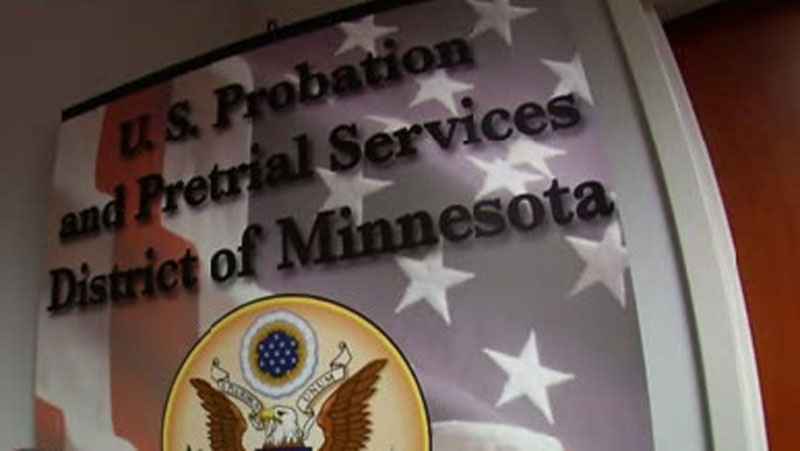Federal Probation Officer, Judge Discuss Integrating Extremists Back Into Society in Minnesota
[anvplayer video=”4347125″ station=”998122″]
Minnesota has more jihadists and white supremacists than any state in the country.
That’s according to Minnesota’s chief federal probation officer and chief federal judge.
There are currently 21 extremists on supervised release in the state. Twelve of them are jihadists. Nine are white supremacists.
Four more extremists are scheduled to be released in the next year. That means 25 extremists will be living in Minnesota communities.
The increase in extremists coming into the system demanded a strategy or plan that wasn’t available nationally, chief federal probation officer Kevin Lowry said.

[KSTP]
RELATED: Woman Accused of St. Kate’s Arson Now Facing Federal Terrorism Charge
In a rare on-camera interview, Lowry said he had to travel to the United Kingdom and Germany in September of 2015 to begin to build a playbook on how to transition terrorists back into society.
He became an expert in what motivates terrorists, what it takes to de-radicalize them and why some may never be de-radicalized.
"We picked up programs in Germany and the U.K. because those are countries that are more similar to us in economics, diversity, religion, politics," he said.
"I met with a number of service providers and government professionals that are fully tasked with dealing with extremist cases. We brought into the United States a number of professionals that would help us and train us in risk assessment and intervention strategies that have been tested over 20 years."
The Twin Cities have seen several high-profile terrorist incidents in the last few years, including the conviction of nine young Somali men who tried to help ISIS, a 20-year-old man who stabbed two brothers at the Mall of America in the name of Jihad last November and a 19-year-old woman accused of arson at St. Catherine University this past January.
She told investigators she wanted to help Al Qaeda.
Lowry cannot talk about specific cases because he supervises all terrorists convicted in the Minnesota federal court. He’s also had to supervise individuals convicted of involvement in organized crime and waves of other kinds of extremists over the years.
RELATED: Sentence Handed Down to Man Who Pleaded Guilty to Mall of America Stabbings
But he worries about the growing number of jihadists and white supremacists.
"When you look at somebody who’s been radicalized, what you’re going to look at is what’s their level of engagement," he said. "What’s their level of intent, what’s their level of capability, is there any type of mitigating factors that can be incorporated in the rehabilitation."
He said there are some red flags officers look for in radicalized individuals. A green bird often represents martyrdom, lions indicate jihad or fighting for a cause.
Lowry said white supremacists are more obvious in their extremist views.
RELATED: Court Records: Mall of America Stabbing Suspect Pleads Guilty, Calls it Act of Jihad
"They do what we call flying a flag," he said. "They are always advertising, wearing a certain kind of clothing. Black leather boots with pant legs rolled up, Nazi SS emblems, swastikas, lighting bolts, Celtic crosses for white pride and 1488 tattoos indicating an allegiance to Hitler.
"They are easy to spot and they want to be spotted."
Lowry said extremists have turned pure religious messages like the Islamic call to prayer "Allahu Akbar," meaning God is Great, and the Christian cross, into evil calling cards.
He also said the videos terrorist organizations use for recruiting are highly produced and engaging.
Lowry is training hundreds of probation officers across the country, as well as the Bureau of Prisons, to recognize the signs.
But before Lowry sees them, extremists stand in front of federal judges.
Minnesota’s Chief Judge of the Federal Courts John Tunheim is one of the foremost experts in the country and around the world on terrorist defendants.
The UN invites him to talk about Minnesota’s integration of terrorists back into society, which he pioneered. And the U.S. State Department sends him around the world to talk to officials in different countries about Minnesota’s program.
Tunheim saw some of the first extremist cases in Minnesota. He believes all terrorists are not equal, and the justice system’s one size fits all approach doesn’t work well in extremist cases.
"Putting them away in prison where they would get more radicalized as the years go on and radicalize other people is not in the best interest of society," Tunheim said. "What’s in the best interest of society is to bring these people back and make sure they are productive citizens, so that’s what we are trying to do."
Tunheim knows he walks a line between prioritizing public safety and an extremist’s right to redemption.
He admits there is always the possibility that he’ll make a wrong decision.
But it hasn’t happened yet.
"Maybe we make a wrong decision," he said. "Hopefully it’s a decision made with as much information (and) knowledge and training and experience in addressing an area that we haven’t had much experience addressing.
"All of it is a gamble because you can’t always predict the future. Let’s see what we can do, let’s see if we can create better people."
He said extremists who serve their time and go back into their communities to share stories of their wrong turns can be powerful when it comes to dissuading other people thinking about the same path.
Better people can better happen when a national strategy is in place, Lowry said.
He said if there’s not a way to do what Minnesota is doing across the country, the problem of extremists will grow.
"What I’m worrying about is, is something bad going to happen on my watch," he said. "Is something going to go wrong? Are one of these cases going to go off the deep end and harm somebody in the community?"
It keeps him up at night.